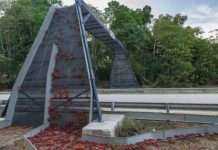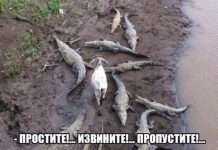For generations, the people of the Solomon Islands have lived in harmony with the land and sea. But in the 1990s, that balance was threatened as commercial logging swept across the region, leaving a trail of devastation in its wake. Among those who fought to protect their ancestral home was Katy Soapi, a scientist and descendant of Tetepare Island, a sacred place facing imminent destruction.
A Fight for Identity
Tetepare is more than just trees and beaches. It’s a living testament to the cultural heritage of the Western Province, home to ancestral gardens, sacred burial grounds, and the collective memory of its people. When whispers of logging concessions reached the island, the community knew they were facing not just an environmental threat, but an existential one.
“To lose Tetepare would have been like losing part of ourselves,” Soapi explains. “It wasn’t just about trees anymore; it was about identity and heritage.”
From Student Activist to Scientific Leader
Soapi, then a university student, became a founding member of the Friends of Tetepare, later evolving into the Tetepare Descendants’ Association (TDA). She worked tirelessly, connecting communities, organizing meetings, and lobbying governments to halt the logging concessions.
“We needed both – the knowledge of our ancestors and the tools of science to show the world why Tetepare mattered,” she says.
The fight gained global attention, culminating in the Australian documentary Since the Company Came, which exposed the struggle to the world.
A Community-Led Conservation Model
The relentless pressure paid off, and logging was halted. Today, Tetepare remains one of the last untouched places in the Solomon Islands, managed by the TDA, which sustains itself through ecotourism and traditional practices.
The TDA’s success is a testament to the power of community-led conservation, where indigenous knowledge is interwoven with modern science. Annual gatherings bring descendants together to make collective decisions, ensuring that the island’s fate remains in the hands of its people.
Threats Remain
Despite the victories, the fight is far from over. The lure of quick money from extractive industries continues to tempt some, while external pressures from developers threaten the island’s fragile ecosystem.
“It’s always easier to sell trees for a few hundred dollars and have the money in your hand today,” Soapi admits. “But conservation gives us fish, food, and clean rivers for generations. That’s harder to measure in the short term.”
A Pacific Model for the Future
Soapi’s journey from student activist to respected regional scientist embodies the Pacific’s leadership in conservation. Her work, particularly in ocean acidification, has had a significant impact, while her mentorship has inspired a new generation of scientists.
In 2012, the TDA won the prestigious United Nations Equator Prize, recognizing its community-led conservation model as a global example.
“Tetepare taught us that conservation isn’t just about protecting land; it’s about protecting who we are,” Soapi says.
Today, she continues to advocate for indigenous knowledge and community-led approaches as a partnerships coordinator at the Pacific Community Centre for Ocean Science. But she remains deeply tied to Tetepare, recognizing that the true guardians of the island are its descendants.
The story of Tetepare is a powerful reminder that conservation is not just an environmental issue; it is a fight for identity, heritage, and the future of Pacific communities. It is a testament to the enduring power of indigenous knowledge and the unwavering commitment of those who refuse to let their sacred places be destroyed
























































